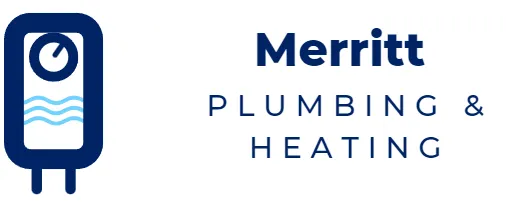Essential West Columbia Troubleshooting Tips
for Common Water Heater Problems
To keep the household running smoothly and avoid daily disruption, it is essential to maintain the efficient operation of your water heater. In case of breakdown, this guide offers an overview of the most common issues and troubleshooting tips, providing a helpful resource to address any problems that may arise.
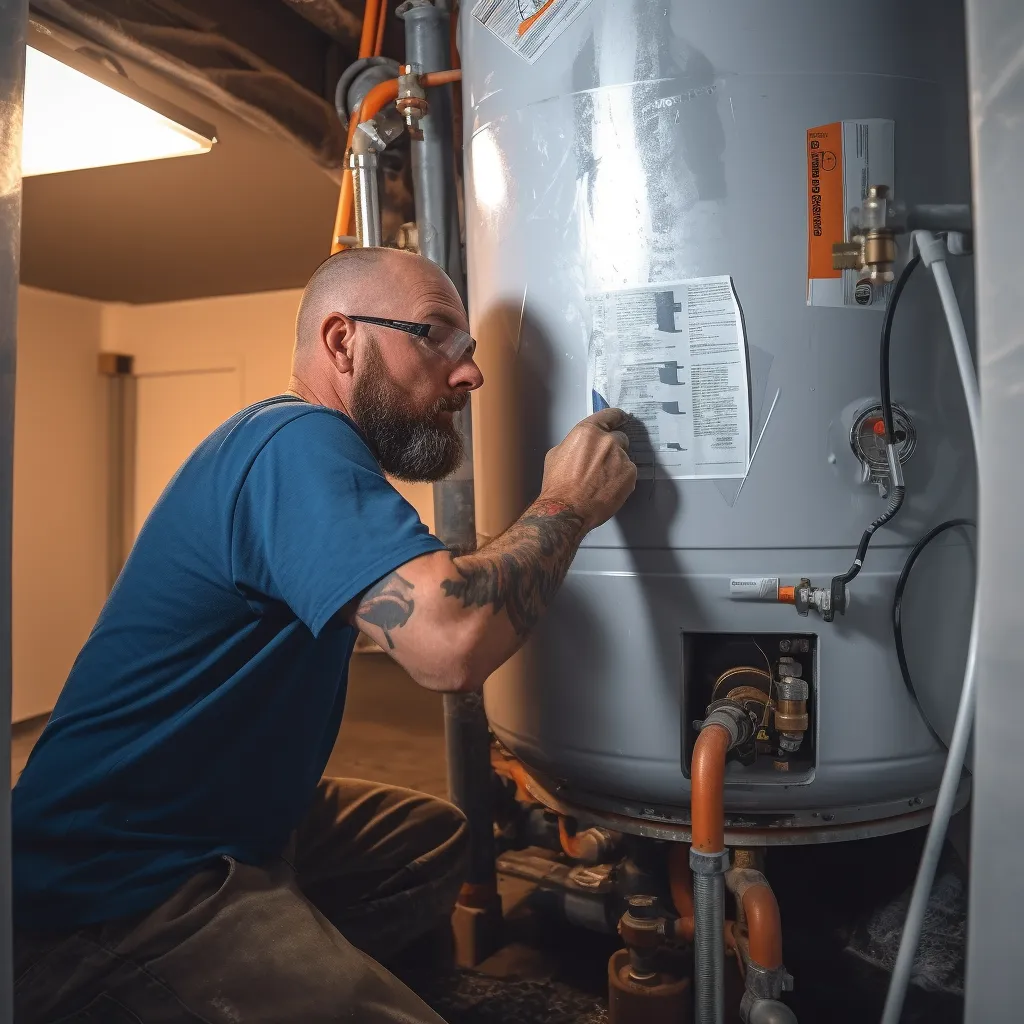
The tank is leaking
If your water heater is leaking, there may be a faulty pressure relief valve or a corroded tank. Here's what you can do:
To identify if the pressure relief valve needs to be replaced, inspect it carefully.
Conduct a comprehensive examination of the tank to identify any signs of damage or corrosion. If any such indication is detected, the tank must be immediately replaced.
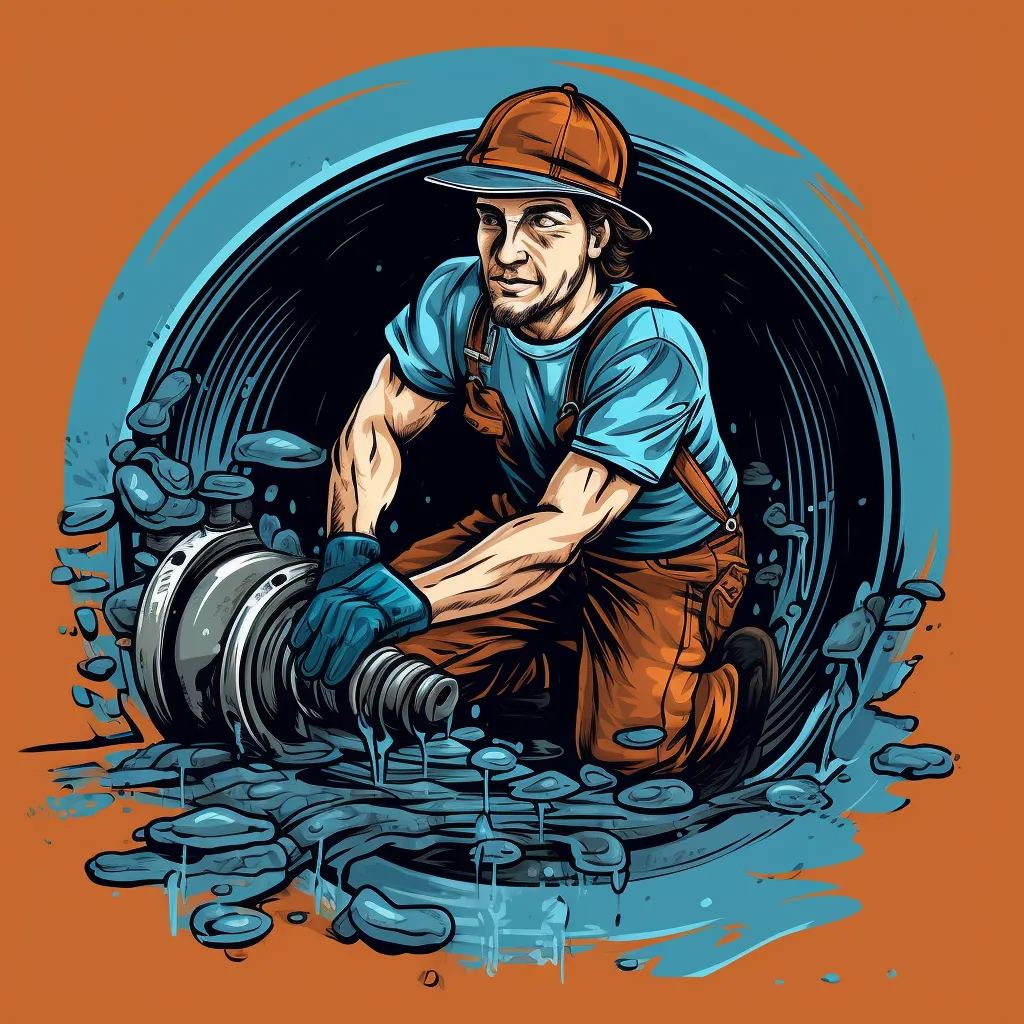
The water is discolored
If you're seeing discolored water, your water heater might need flushing and descaling. Here's what to do:
Check if the pressure relief valve requires replacement.
Use a solution of white vinegar and water to flush the heater.
Inspect the anode rod for signs of wear and tear, and replace it if there is any corrosion.
Seek professional assistance if you need to carry out a thorough descaling treatment.
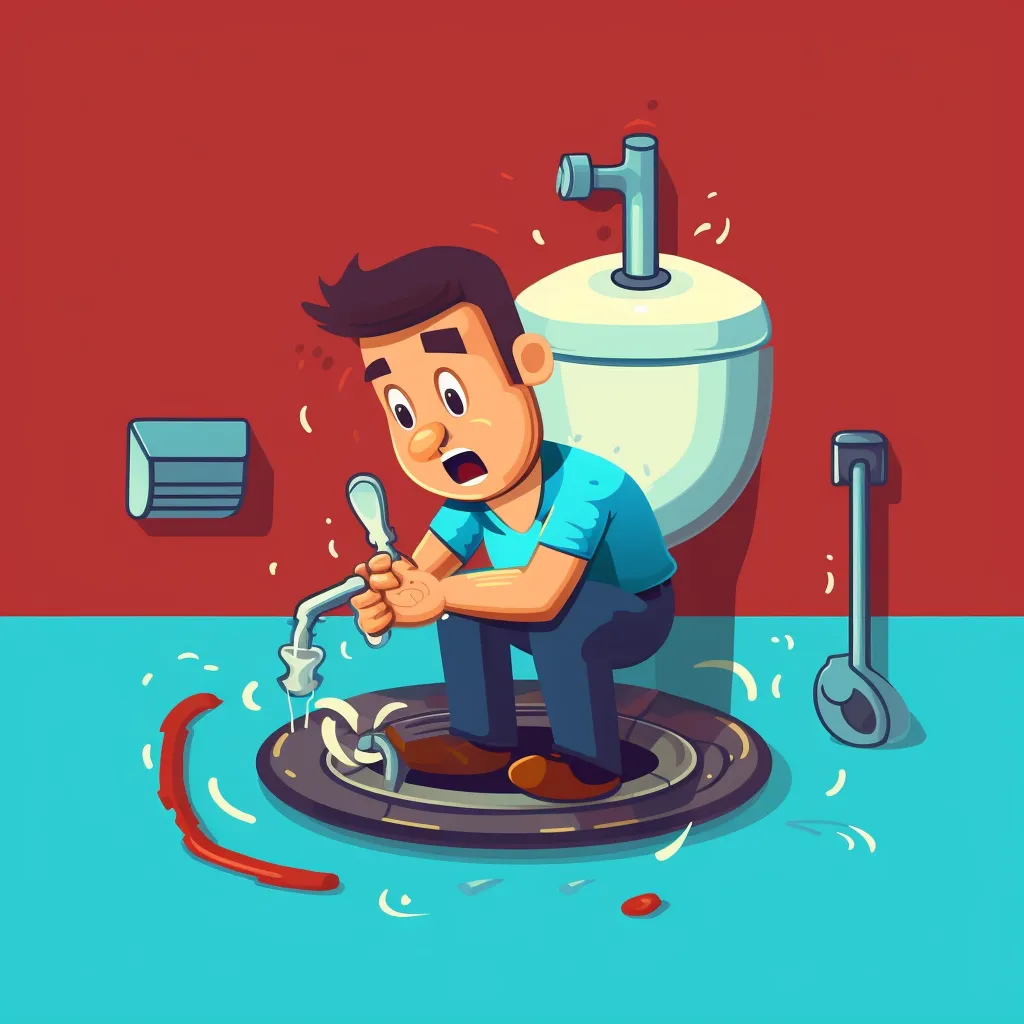
The water smells bad
Tank problems might be caused by dirty bacteria buildup. Here's what you can do:
Have a professional inspect the tank to determine if it needs to be replaced.
To reduce odors, flush out the water heater by using a solution of white vinegar and water.
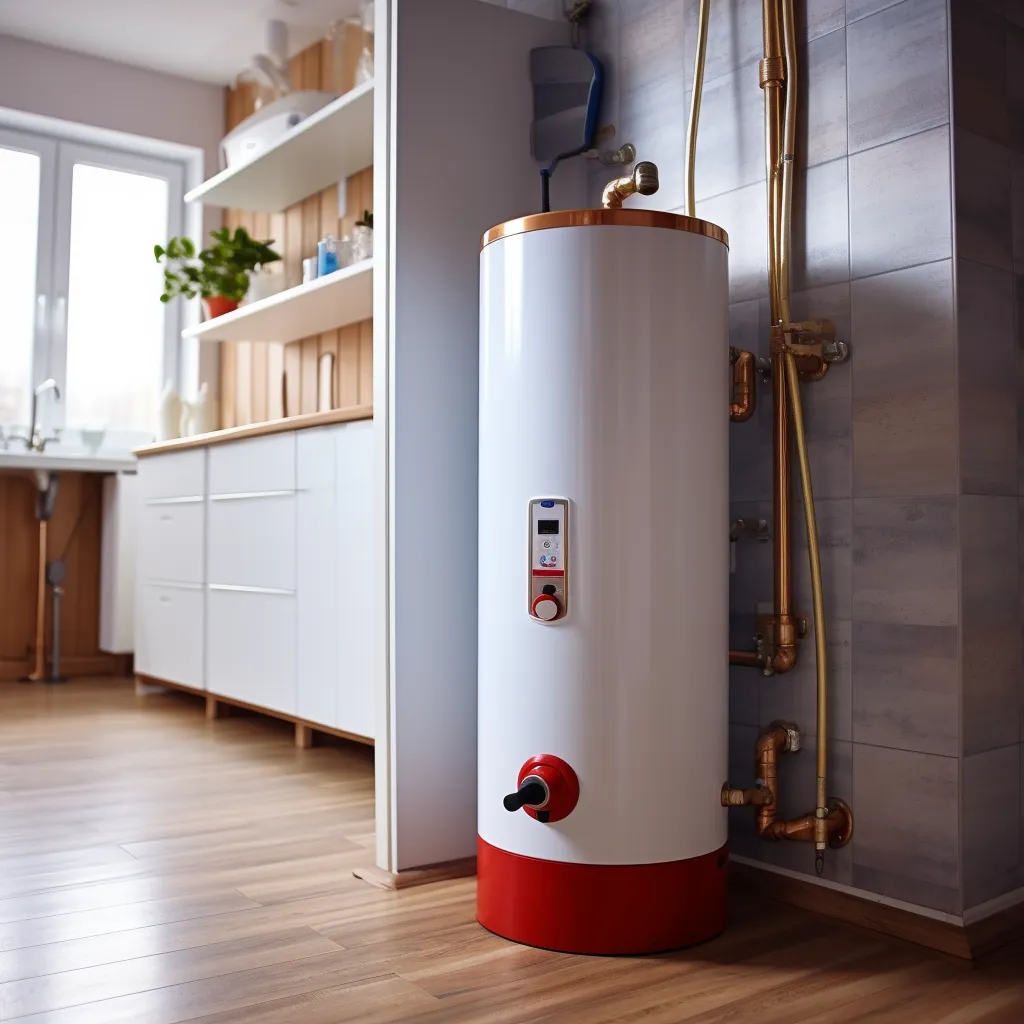
Noisy water heater
If unusual noises are coming from your water heater, two of the typical causes could be sediment buildup or loose parts. Here's what you should do:
To prevent sediment build-up in your water heater, it is recommended to flush it periodically.
It is important to have a licensed plumber inspect all internal components to ensure proper security.
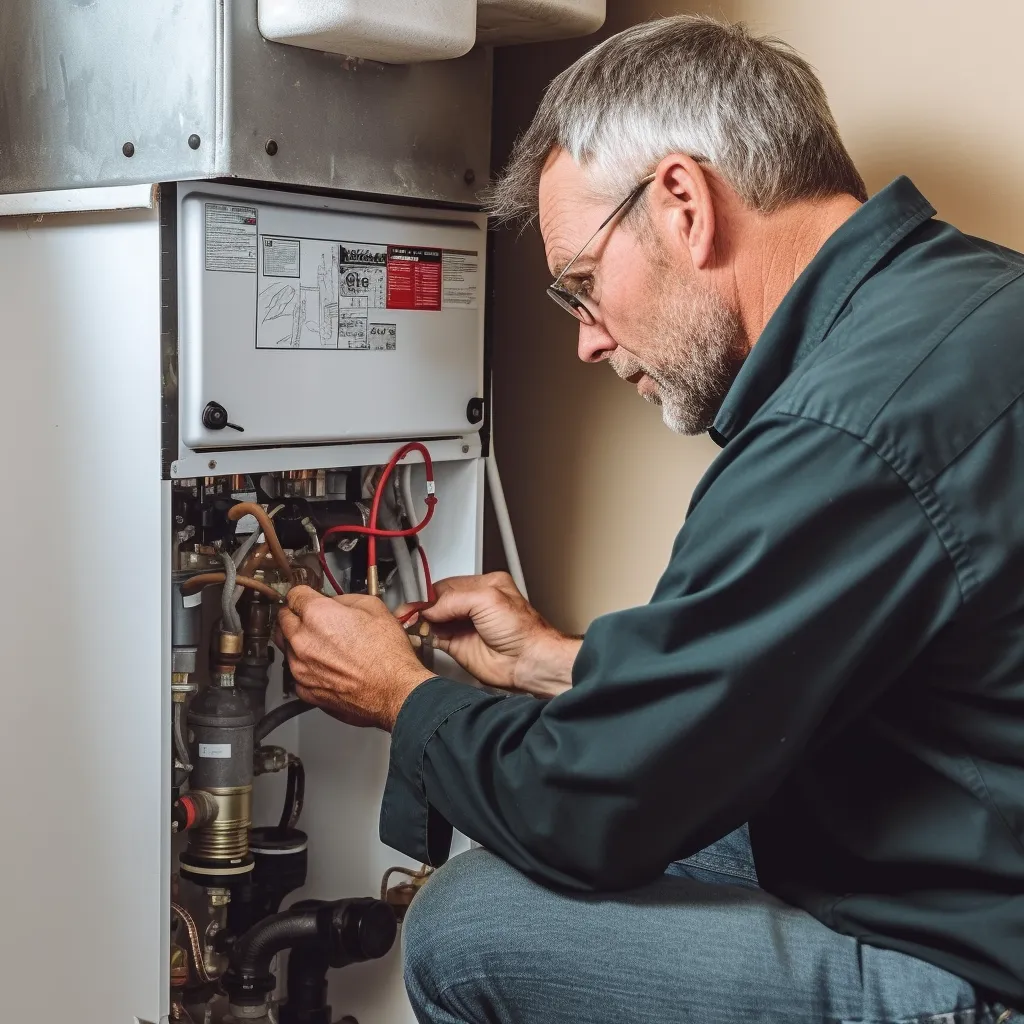
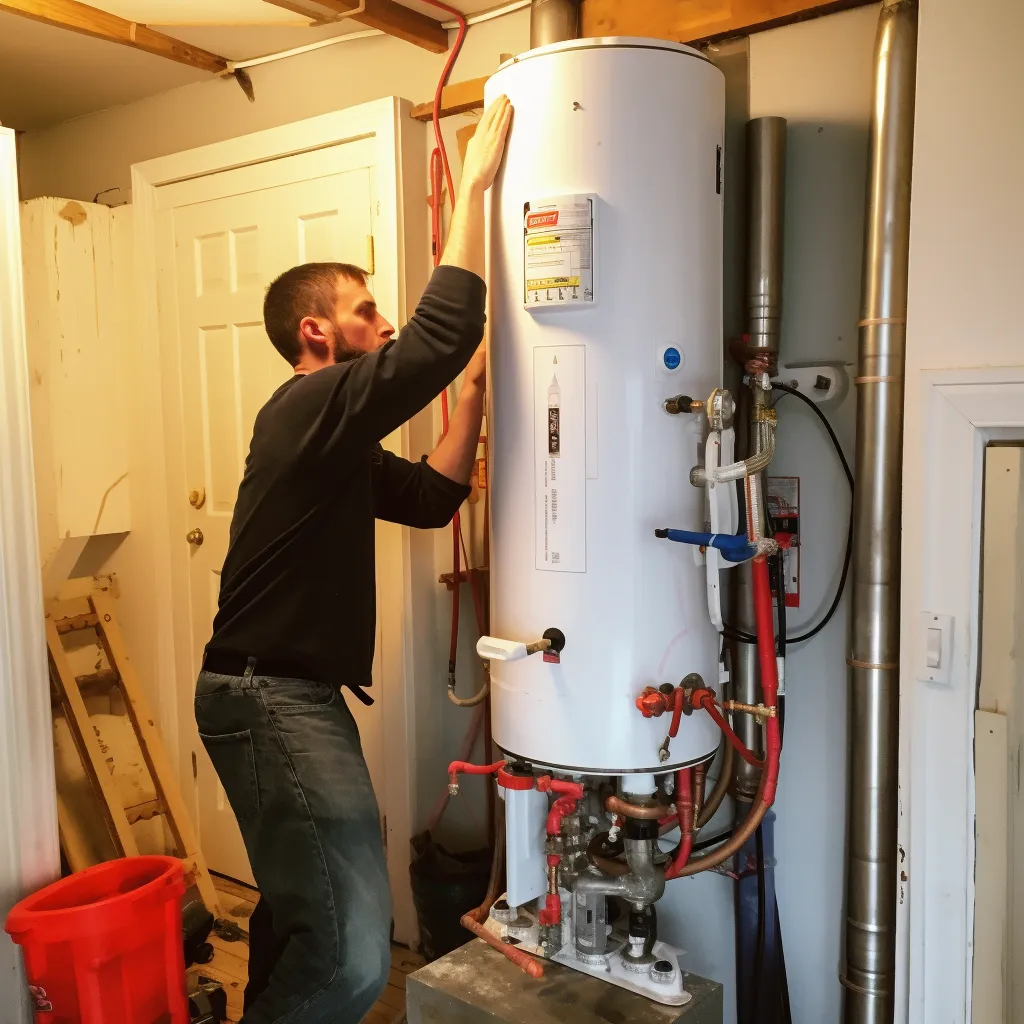
Tank takes a long time
to reheat
If your tank heater is taking an excessive amount of time to reheat, a malfunctioning thermostat, an undersized tank, or mineral buildup could be the cause. Here are some steps to resolve the issue:
Proper water temperature is essential.
Consider replacing the thermostat if you find inadequate heating.
It's advisable to have a professional examine your water heating system for mineral build-ups and descale it if needed.
If you frequently face a shortage of hot water, upgrading to a larger tank may be the solution.
Low hot water pressure
When you notice a drop in your hot water pressure, the root of the problem could lie in a leaky system or a small hot water tank. Luckily, there are several possible solutions you can try.
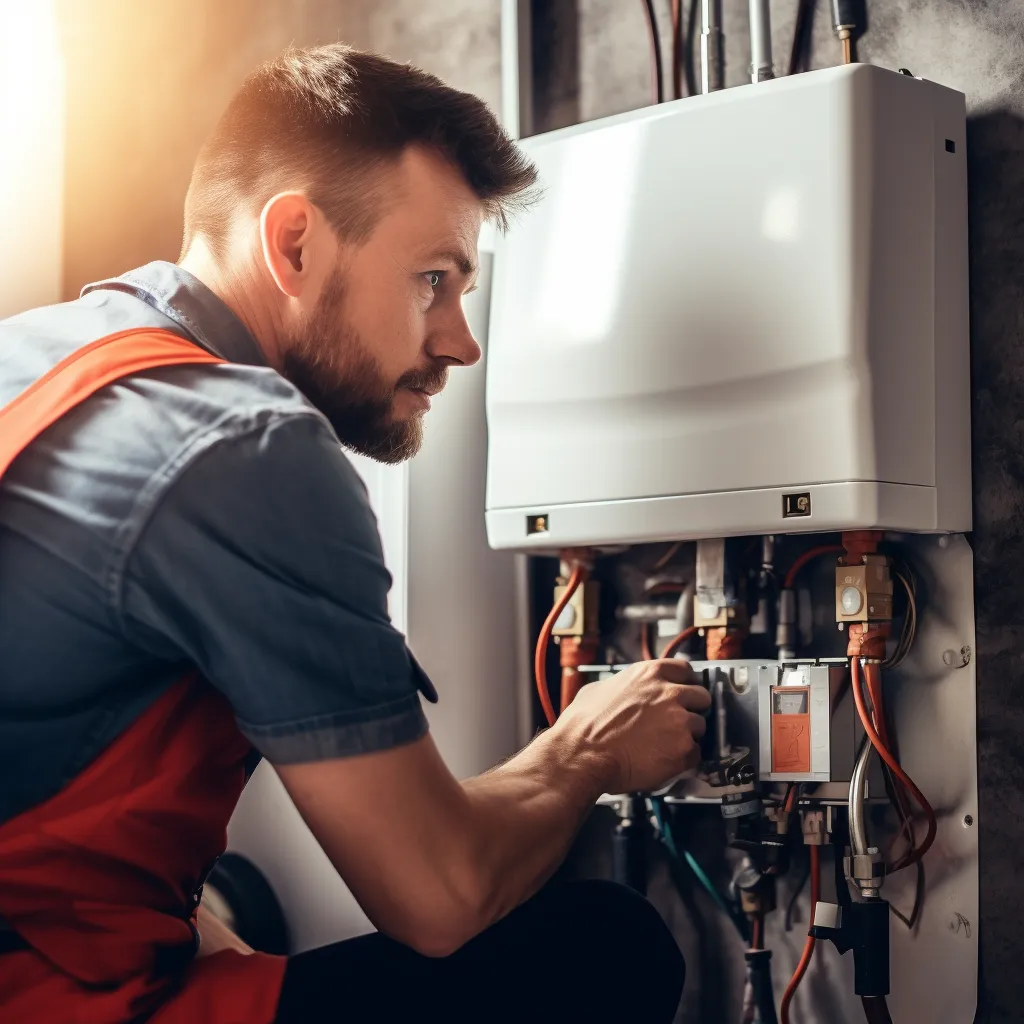
Ensure that your hot water tank is of the necessary size to accommodate all the water outlets in your home. If it's not, upgrade to a larger one.
We advise that you seek the services of a licensed plumber to inspect the plumbing system for any leaks.
Verify the proper functioning of your pressure relief valve.
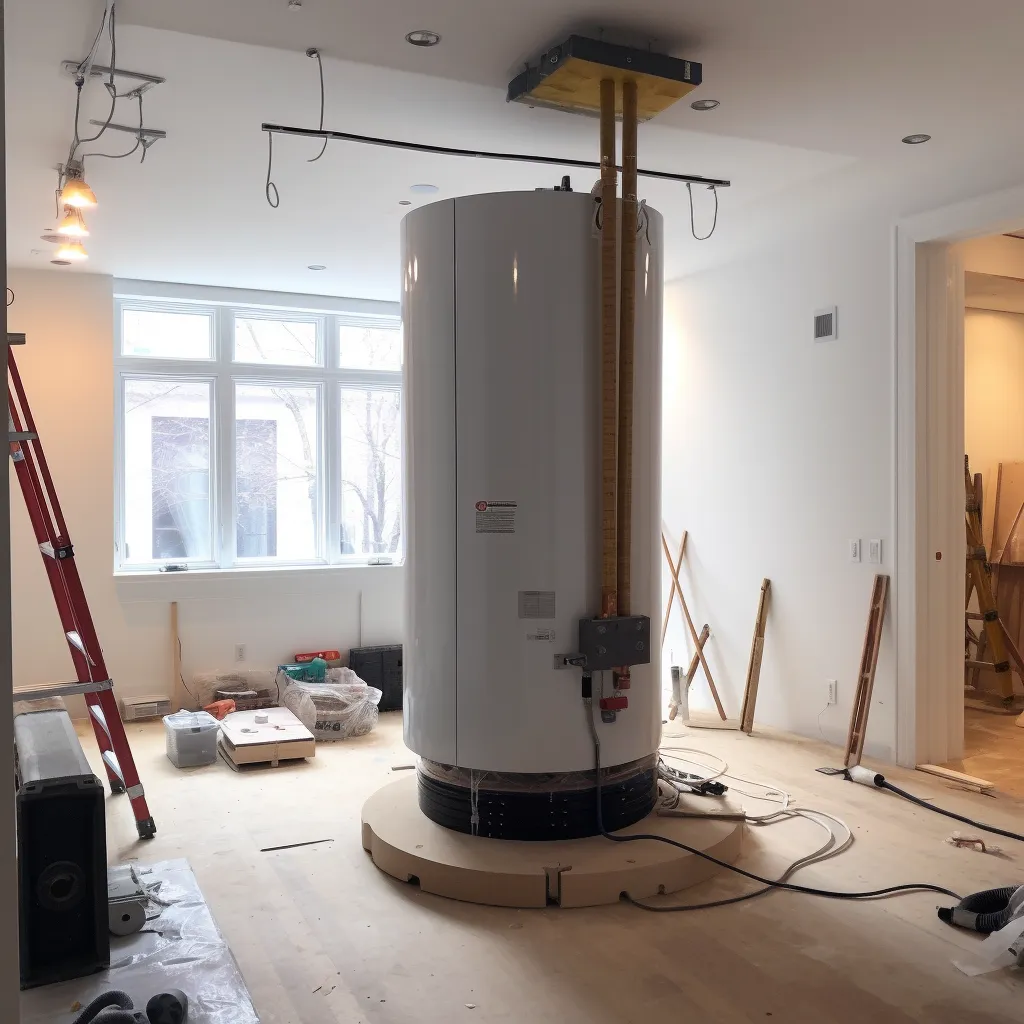
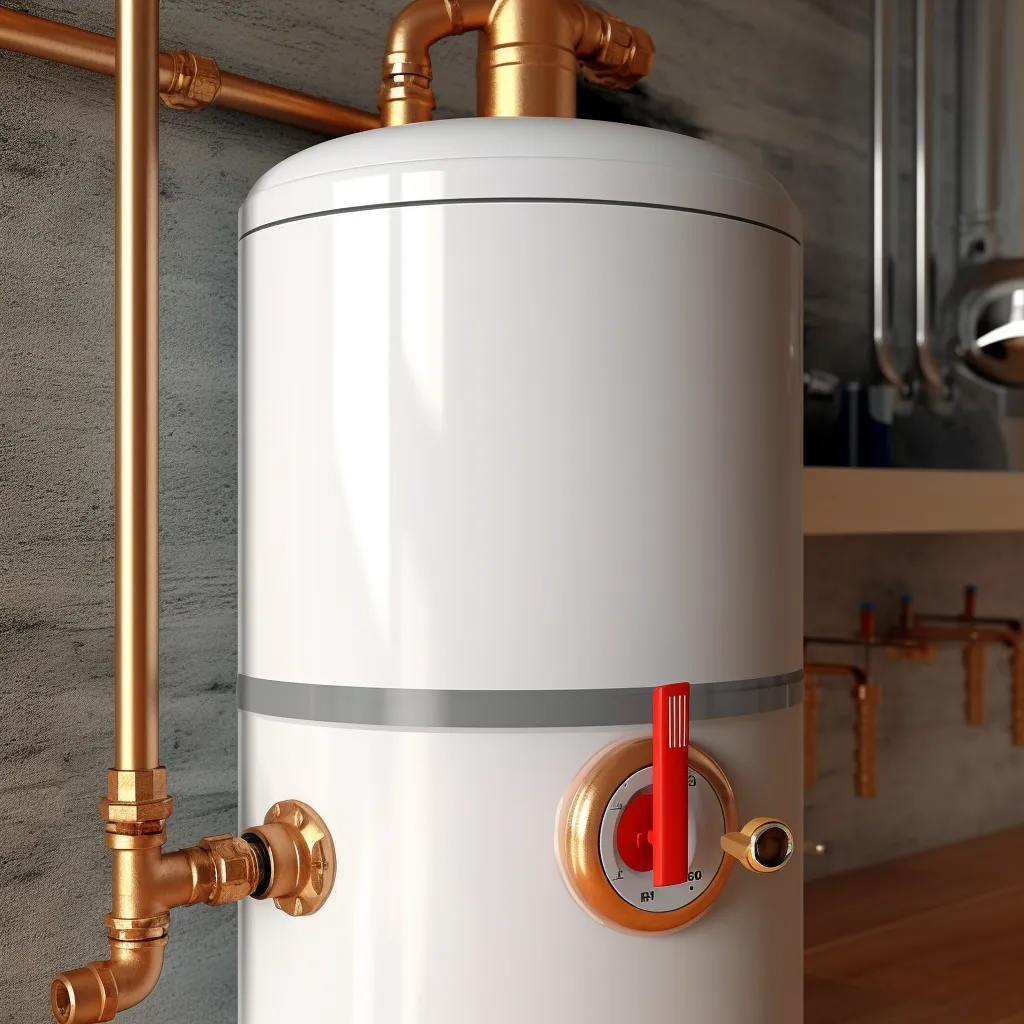
Low supply of hot water
When the water temperature drops faster than usual, it might be a result of issues such as a thermostat malfunction, an undersized tank, or obstructed pipes. Below are some tips to troubleshoot the problem:
To ensure proper functioning, check your thermostat.
It is advisable to have a professional inspect your water heater and perform a descaling cleaning as needed.
If your current tank fails to meet your expectations, upgrading to a larger one is worth considering.
How you can prevent future water heater problems
To avoid future issues with your water heater, you should:
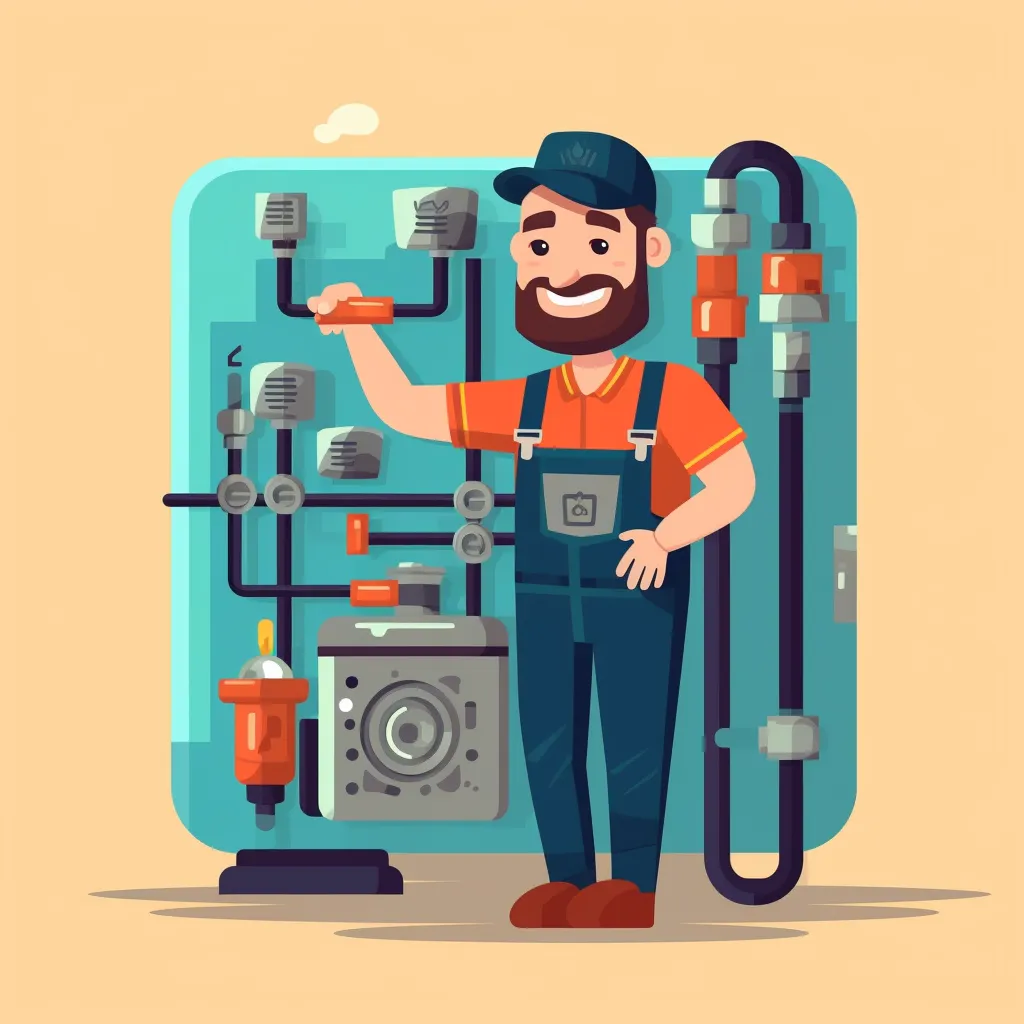
Regularly check your water heater for signs of wear and corrosion.
Remove sediment buildup by flushing out the tank frequently.
Make sure there are no leaks by inspecting valves and fittings regularly.
To prevent corrosion, replace the anode rod every few years.
If needed, contact a professional for full descaling or annual servicing.
Choose the right size of water heater to meet your needs.
Follow recommended temperature settings.
Prevent heat loss by insulating pipes.
Save energy by using energy-efficient models that don't overfill.
If you notice a leak, repair it immediately.
Know where the shutoff valve is in case of emergencies.
Lower the temperature to reduce energy consumption.
To reduce odors, keep a solution of white vinegar and water in the tank.
Avoid using chemicals that may damage your water heater.
Always follow the manufacturer's instructions for servicing and repairs.

It's always prudent to consult a professional if you're unsure about your maintenance and repair abilities. Still, staying ahead of future problems and keeping your water heater operating smoothly can be achieved by adhering to some straightforward guidelines.
When is it time to call in a licensed plumber?
To maintain the efficiency and safety of your water heater, timely inspections and servicing by licensed plumbers is crucial. Not only can they identify and resolve potential problems early on, saving you money, but they can also advise on the best water heater for your home and recommend energy-saving strategies. In case of any issues with your heater, contacting a plumber promptly can prevent costly repairs.
What to look for in a licensed plumber
When selecting a licensed plumber, be sure to:
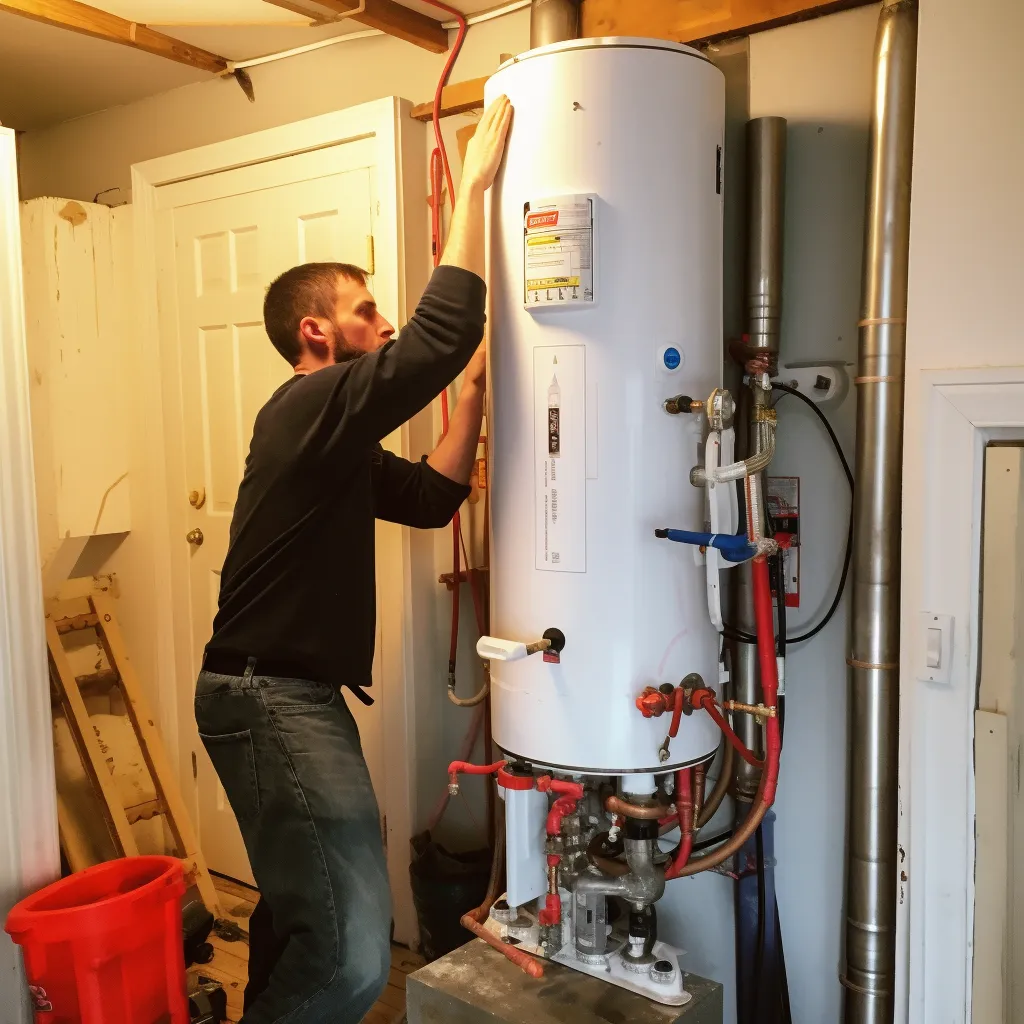
Check that the plumber you are interested in is licensed and insured to work in your area.
Choose a specialist for water heaters with the necessary experience to maintain and repair your system.
Do your own research by visiting the company website, checking their ratings, and asking friends for recommendations to make an informed decision.
Compare prices to get a fair rate that suits your budget.
Confirm that the technician you choose is up-to-date with the latest trends and technology in the industry.
Ask about service guarantees and their emergency availability.
Effective communication is key to understanding the work being done.
.
Reach out to an experienced water heater pro
If your water heater is facing issues, there could be different reasons behind it. Here are some common causes that you should know about. To get a lasting solution, getting the unit inspected by a licensed plumber is recommended. These tips can help you resolve water heater issues and maintain the smooth functioning of your house. If you need further assistance, reach out to an experienced plumber to survey your water heater and suggest the most effective solutions to fix it.
Contact Us
GET IN FULL TOUCH
PHONE:+(803) 784-1514
EMAIL:
julio@waterheaterwestcolumbia.com
Merritt Plumbing & Heating
West Columbia, SC 29171
